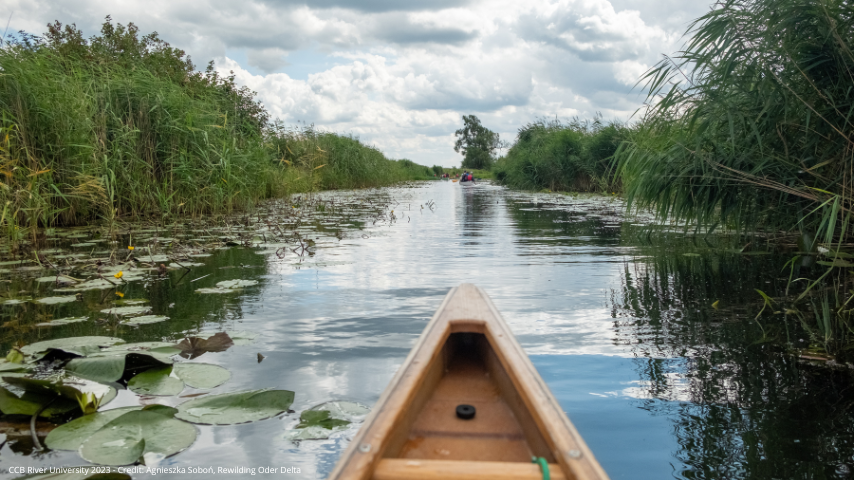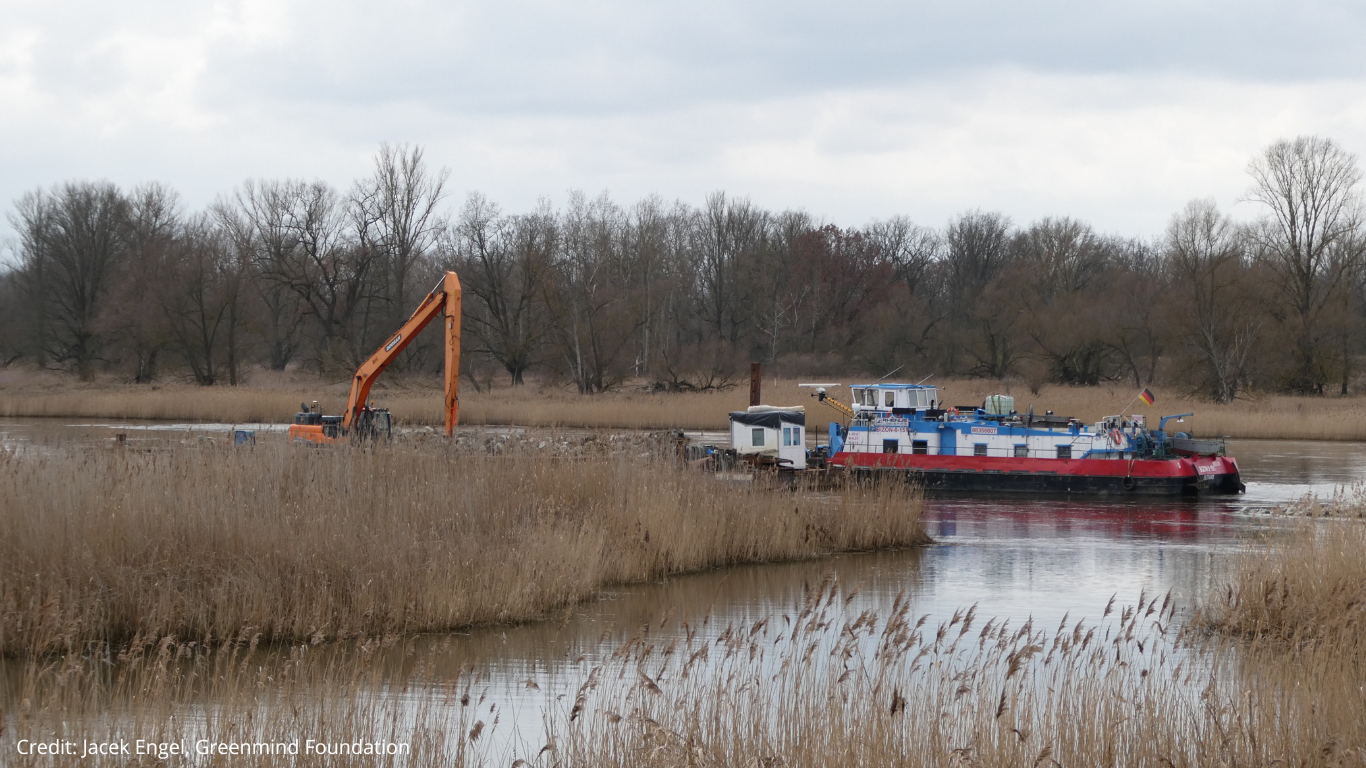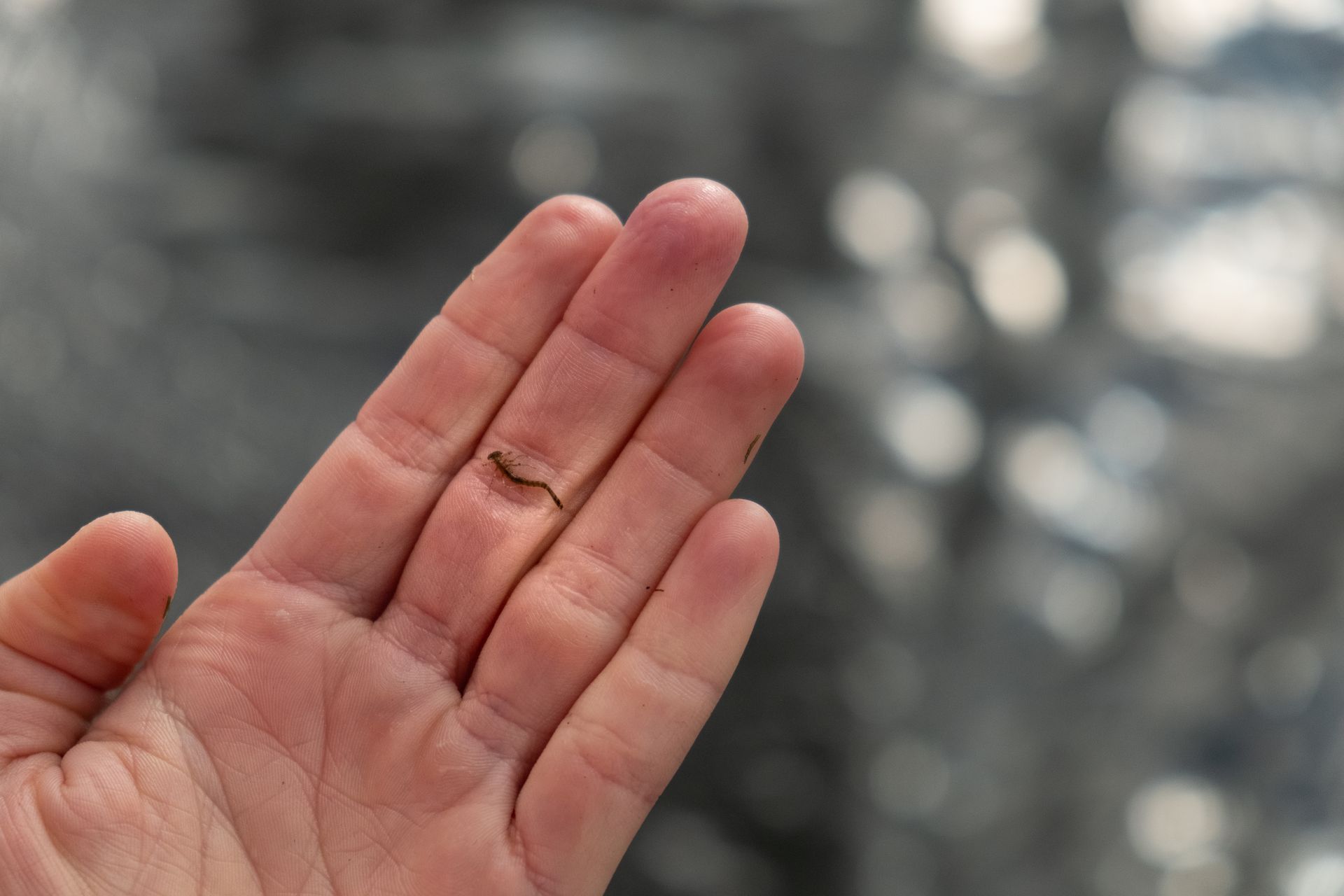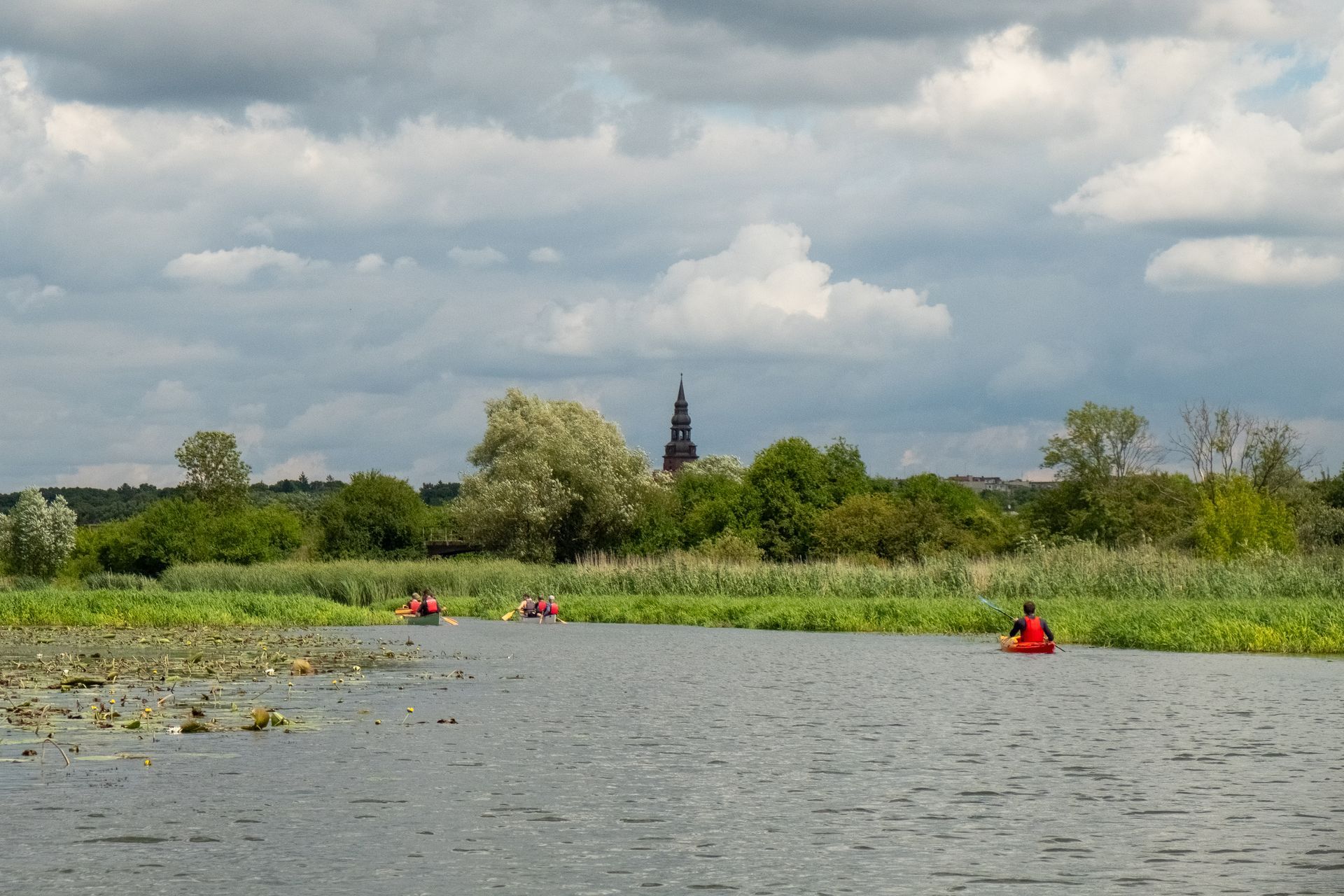Resilient rivers – the place we would like to be

August 2023 - “Over several days, we explored firsthand the significance of freshwater ecosystems for nature-based water management, sustainable forestry, waterway management, environmental accident mitigation, the practical challenges of rewilding, and so much more. It was a truly immersive experience that highlighted the beauty and fragility of rivers and reinforced the need to protect these ecosystems” commented Valerie Kendall, from MKO Ireland and one of the lecturers of the 4th edition of River University, which took place in the unique Oder Delta landscape, in Germany, on 31 July-4 August 2023.
The environmental catastrophe in the Oder river in 2022 still shows its negative consequences nowadays - along with new issues and challenges - making it difficult to reach a full and smooth recovery. To experience, understand and discuss the importance and the need of an integrated water management plan in the whole basin, the participants of this year's edition of River University gathered in the Oder river basin, hosted by the co-organizer Rewilding Oder Delta.
KEY PROBLEMS IN ODRA BASIN
The biggest problems of the Oder river and its basin relates mainly to the poor quality of its surface waters and its hydromorphological transformation [1]. Above-normal amounts of toxic polycyclic aromatic hydrocarbons (PAH) and heavy metals are present in surface waters which result in poor chemical status of Oder waters.This pollution comes from fossil fuel burning, transport and industrial emissions. Relying on fossil fuels in transport, energy and heating, doesn't help the recovery. Coal mines, which still function in the trilateral Odra basin, are responsible for brine discharges that have a significant impact on the high salinity of the Oder river. Additionally, large technical investments in new dams for inland navigation and hydropower stations negatively affect the river's natural capacity to self-regulate, and by consequence contribute to the current climate crisis.
In such a vulnerable riverine ecosystem, the concerns are high both in the Polish and German borders.

THERE IS STILL HOPE
Data science gives hope to the local communities: the Oder River is alive [2]. Different species of fish and conditions for breeding are present, yet it's our human work to be done to help this river to return to its full swing of life.
A coordinated approach of the different states (Germany, Poland and the Czech Republic) is essential: responsible ministries as well as the lower authorities and intergovernmental organizations like the Helsinki Commision (HELCOM) and the International Commission on the Protection of the Oder against Pollution (ICPO) have to cooperate with each other for the management and protection of the Oder basin.
“The pressure on the Oder river is high and it’s not the only one. This is the point when catastrophe only waits to appear.”, commented Pavel Danihelka from UNECE Joint Expert Group on Water & Industrial Accidents, during River University 2023 [3].
Continuous water quality monitoring is critical for detecting and preventing pollution discharges. Still, in the entire territory of the international basin of the Odra River, this activity is not being carried out now at any locality. It was done in the period 2004-2014, helping to discover and record a number of cases of significant deterioration of the biological quality of waters, but despite the advantages the river basin management institutions stopped the activity after ten years [4]. Also, macroinvertebrates can play a role in biomonitoring, providing valuable information on the trends of biological changes based on their role in the ecosystem and unique characteristics [5].

CCB River University 2023 - Credit: Agnieszka Soboń, Rewilding Oder Delta
INPUTS FROM RIVER UNIVERSITY 2023
During the 5-days event, speakers, practitioners and guides stressed the importance of river´s resilience, the ways to improve it, and urgency to speed up the fulfillment of the EU Water Framework Directive (WFD) to protect our biodiversity including the Odra river waters and natural resources that rely on them.
The lectures, field visits and expert discussions revealed that there are plenty of tools available to reduce risks and avoid critical situations, e.g.:
- SCIMAP - a rapid spatial assessment tool [6];
- Water Management Adaptation, with useful methodology such as the Czech "Methodology of the procedure for declaring emergency conditions on streams" [7];
- Cross-sectoral and transboundary cooperation, as also stated in the new CCB report “The Greatest Water Management Challenges in the Baltic Sea Region”;
- Improving the natural character of rivers by applying rewilding principles of increased water retention, allowing dynamic processes to form rivers, regenerating the natural morphology of river beds to reconnect floodplains;
- Updated International Warning and Alarm Plan for Odra basin.
“We strongly believe restoring ecosystems on a landscape scale is achievable when various institutions, businesses, organisations and individuals cooperate and share the same vision. We are excited to see the new collaborations that have emerged from the River University, bringing us closer to achieving this goal.”, remarked Ewa Leś and Peter Torkler, co-organizers of River University 2023.

CCB River University 2023 - Credit: Agnieszka Soboń, Rewilding Oder Delta
The Oder river is not only an infamous example of what can happen when human pressures damage the environment, but it could also represent a good example of holistic approach and joint transboundary improvements to make the recovery possible [8] and to ensure the resilience of the river.
***
Article written by Ewa Leś, CCB Eutrophication Working Area Leader & founder of River University.
NOTES
[1] CCB Report “Major Challenges For Water Management In Poland” (2023), extended analysis of the CCB report “The Greatest Water Management Challenges in the Baltic Sea Region” (2023).
[2] Lecture at River University 2023:
’Dying river – what the Oder catastrophe has shown us’, Christian Wolter, IGB.
[3] Lecture at River University 2023:
‘The potential problem of chemical accidents on rivers’, Pavel Danihelka, University of Ostrava & Member of UNECE Joint Expert Group on Water & Industrial Accidents.
[4]-[7] Lecture at River University 2023:
'Accidental pollution of rivers', Přemysl Soldán, T.G. Masaryk Water Research Institute.
[5] Lecture at River University 2023:
'Benthic macroinvertebrates: tiny creatures - big environmental clues’, Valerie Kendall, MKO, Irland.
[6] Lecture at River University 2023:
'Tools to support resilient, nature-based water management', Aaron J. Neill, Institute of Hazard, Risk and Resilience, Durham University (UK).
[7] See note n. 4.
[8] Online article on the Green European Journal (14 August 2023):
‘Odra Disaster, One Year On: Poland’s Rivers Still Need Saving’, Ewa Leś, CCB Eutrophication Working Area Leader & founder of River University.

